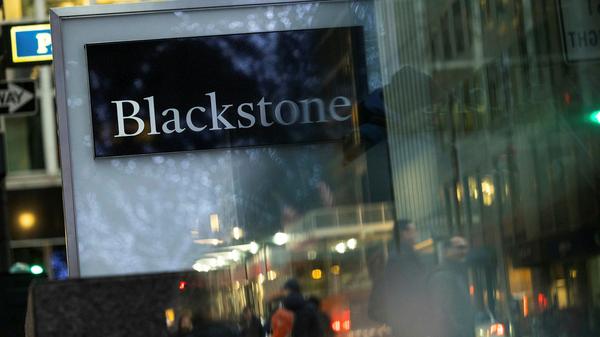Blackstone is on the lookout for buying opportunities from the global stock market slide that has started the year, particularly in hard-hit sectors such as ecommerce, cloud computing and cyber security.
Jonathan Gray, president of the world’s biggest alternative asset manager, said “the market trading off and the average Nasdaq stock being down over 40 per cent [from last year’s all-time high] could create opportunities” for the group.
“In technology, in particular, a lot of the megatrends are continuing,” he told the Financial Times. “It’s not like ecommerce, education technology, advertising tech, cyber security and the migration to the cloud are stopping.”
Technology stocks have sunk this year, with the Nasdaq 100 falling 14 per cent and the WisdomTree Cloud exchange traded fund down 21 per cent.
Many prominent technology stocks have performed far worse. Netflix has dropped 40 per cent, while advertising technology company The Trade Desk, cyber security specialist Cloudflare and social media giant Twitter have fallen more than 25 per cent.
“For the market and for our firm, a reset in valuations can be healthy and create opportunity,” Gray said.
His comments come as Blackstone sits on more funds than ever to invest, after drawing $154bn in new assets during the fourth quarter, split evenly between organic inflows and the closing of new insurance accounts.

The New York-based group on Thursday reported that distributable earnings, a metric favoured by analysts as a proxy of cash flow, were up 55 per cent to $2.3bn since the same time last year.
The company generated $5.8bn in quarterly revenues, with earnings per share up almost 80 per cent at $1.92. It announced a quarterly dividend of $1.45 — 51 per cent more than the previous year.
Shares in Blackstone rose over 7 per cent in early trading to $119.50, as the firm’s growth beat analysts’ expectations.
“Blackstone’s fourth-quarter results represented a remarkable finish to a record-breaking year,” said chief executive Stephen Schwarzman as the company released its results.
Inflows of new money amounted to $77bn in the fourth quarter, which Blackstone ended with a record war chest of $881bn, up 42 per cent on 2020.
Blackstone continued to attract new inflows from wealthy investors and benefited from insurance-related investment strategies seeking yield, which together now account for 40 per cent of overall assets.
On a call with analysts, Blackstone announced it will raise 17 new funds, targeting $150bn in new assets, including record-sized flagship real estate and corporate private equity funds over the next 18 months.
During the final quarter of 2021, the firm operated at a breakneck pace, capitalising on buoyant equity markets to sell assets, while also investing heavily as new money poured in.
It sold assets worth $21bn during the quarter, including lender Exeter Finance. It was even more active in new investments, deploying more than $66bn, which took its 2021 total to a record $144bn.
Blackstone is wary of cyclical businesses that could be burdened if high inflation lasts through the year, which is the firm’s current expectation.
“In private equity, you want to invest in companies that are not as exposed to input costs, rising raw materials and labour costs,” said Gray. “We’ve been very cautious about industrial businesses.”
Blackstone has instead favoured technology and life sciences companies, credit investments with floating interest rate features and real estate tied to logistics or booming residential housing markets. It is also betting on a recovery in travel and on new urban office towers.
“There’s a shortage of modern office buildings, particularly in a city like New York, where I think the average office building is 60 years old,” said Gray of Blackstone’s $2.85bn investment in a Manhattan office tower built by competitor Brookfield Asset Management. “The spread [in vacancies and rents] between older and new buildings is very dramatic and it feels like that will persist . . . It’s a bit of a tale of two cities.”
He added that Blackstone was working on the assumption that the closures and remote working conditions of the pandemic were waning.
“We’re believers that normal life will return and that there will be a snap back,” Gray said. “Our expectation is that we’ll soon be back in the office for the most part.”




